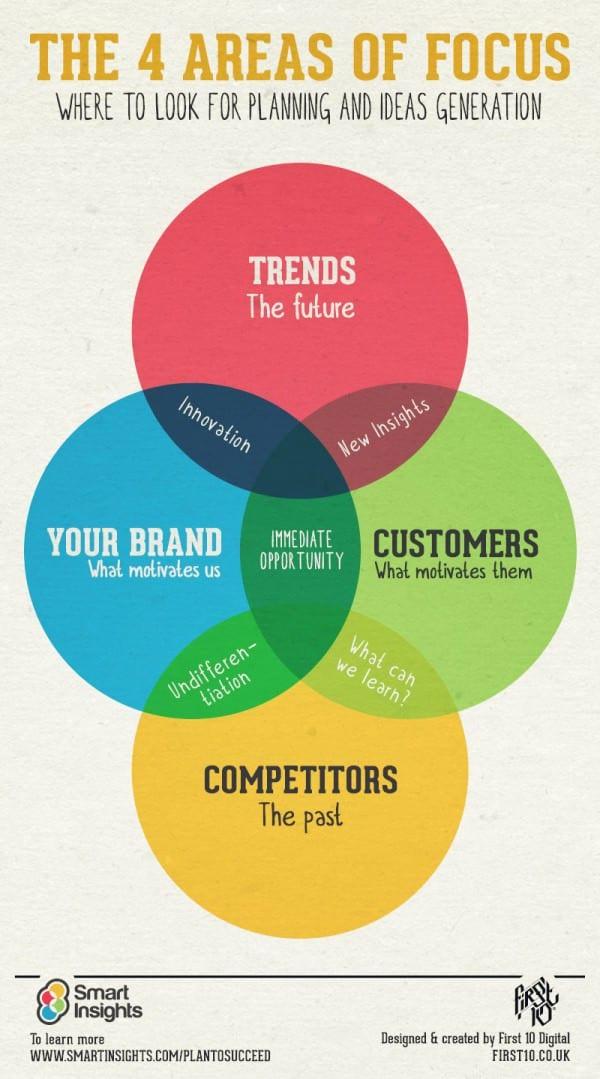In today’s fast-paced business landscape,the success of any institution hinges on its ability to understand and meet customer needs effectively. In the enlightening YouTube video “,” Prof.Kirchgeorg delves into the critical principles of marketing management, providing viewers with a robust framework for navigating the complexities of consumer expectations amidst intense competition. With a focus on the essential tenets of marketing, this introduction lays the groundwork for an insightful exploration of marketing’s true essence, the intricate marketing management processes, and the strategic decisions that marketers must make to stay relevant. Join us as we unpack the key insights shared by Prof.Kirchgeorg, offering valuable takeaways that not only enhance your understanding of marketing but also empower you to apply thes concepts effectively within your own business strategies. Whether you’re a marketing novice or a seasoned professional, this blog post will illuminate the pathways to achieving enduring success through customer-centric marketing practices.
Table of Contents
- Understanding Marketing: the Core Concept of Customer Orientation
- Navigating the Marketing management Process: Essential Steps for Success
- the Decision-Making Landscape: Choices Marketing Managers Must Navigate
- The Impact of Effective Marketing: Building Loyalty and Reducing Costs
- Q&A
- To Wrap it Up
Understanding Marketing: The Core Concept of Customer Orientation

in today’s competitive landscape, customer orientation is not just an approach, but the foundation upon which prosperous marketing strategies are built. At its core, this concept means that companies must deeply understand their customers’ needs and preferences, allowing them to align their products, services, and overall business activities accordingly. This alignment is essential for engaging with customers in a meaningful way and meeting their expectations in a manner that stands out from competitors. By focusing on the customer, organizations can create a value proposition that resonates, ensuring that their marketing efforts are not merely transactional, but relationship-driven.
To fully embrace customer orientation, businesses must shift their focus from traditional views of marketing—often conflated with advertising and sales—to a more holistic understanding of the role of marketing within the organization. This involves recognizing marketing as a core organizational function that encompasses the creation, communication, and delivery of value. By prioritizing the customer in every aspect of their operations, companies can cultivate customer loyalty, enhance satisfaction rates, and ultimately drive growth. Key steps in achieving this include:
- Researching customer preferences and behaviors
- Adapting product offerings to meet customer needs
- Creating meaningful communication strategies
- Establishing long-term relationships with customers
| Customer Orientation Benefits | Implications for Marketing |
|---|---|
| Higher Customer Satisfaction | Encourages repeat purchases |
| Increased Customer Loyalty | Reduces marketing costs over time |
| Improved Competitive Advantage | Attracts new customers |
Navigating the Marketing Management Process: Essential Steps for Success

Understanding the intricacies of marketing management is critical in today’s highly competitive landscape. To effectively navigate this process, companies must first prioritize customer needs and align their operations accordingly. This involves comprehensively analyzing the market dynamics and recognizing the need for an organizational shift towards a customer-oriented philosophy. It’s not merely about advertising or sales; rather,it encompasses the entire framework of value creation and delivery. According to the American Marketing Association, marketing is defined as an organizational function that aims to create, communicate, and deliver value while managing customer relationships to benefit both the organization and its stakeholders.
To successfully implement marketing strategies, managers need to follow a structured approach, including several key steps that facilitate informed decision-making. These steps generally encompass market research, strategic planning, tactics development, and performance evaluation. By thoroughly understanding these stages, marketing managers can craft strategies that resonate with their target audience and respond proactively to market changes. This alignment of business activities not only enhances customer satisfaction and loyalty but also reduces the costs associated with customer acquisition, establishing a sustainable competitive advantage. Consider the following table summarizing the core components of the marketing management process:
| Core Component | Description |
|---|---|
| Market Research | Identifying customer needs and market trends. |
| Strategic Planning | Aligning marketing goals with business objectives. |
| Tactics Development | Creating actionable marketing plans. |
| Performance Evaluation | Assessing the effectiveness of marketing strategies. |
The Decision-Making Landscape: Choices Marketing Managers must Navigate

In today’s fiercely competitive landscape, marketing managers must adopt a customer-oriented philosophy that permeates every aspect of their organizations. This involves understanding the intricate needs and preferences of their target audience and ensuring that all business activities align with these insights. Effective decision-making requires that managers navigate through various critical aspects, including:
- Customer Needs Analysis: Identifying what customers truly want is fundamental.
- Competitive Benchmarking: Evaluating competitors to understand market positioning.
- Value Delivery: Creating offers that resonate with customer desires and expectations.
Moreover, marketing managers must recognize the far-reaching implications of their choices.High customer orientation correlates with increased satisfaction and loyalty, ultimately driving down customer acquisition costs. This positive feedback loop is crucial for sustainable growth. Conversely, neglecting customer insights can lead to a downward spiral of declining satisfaction and lost clientele. Understanding the consequences of these decisions can be illustrated in the following table:
| impact of Marketing Decisions | Positive Outcome | Negative Outcome |
|---|---|---|
| High Customer Orientation | Increased Loyalty | Customer Churn |
| Effective value Delivery | higher Satisfaction | Declining Sales |
| Strategic Market analysis | Improved Positioning | Lost Market Share |
The Impact of Effective Marketing: Building Loyalty and Reducing Costs
In a marketplace defined by intense competition, understanding customer needs and aligning business activities is crucial for success. Companies that adopt a customer-oriented philosophy not only fulfill market demands but also foster loyalty among their customer base. This loyalty manifests as repeat purchases, positive word-of-mouth, and an overall enhanced brand reputation. By maintaining a focus on the customer,businesses can effectively differentiate themselves,leading to improved satisfaction rates. The ripple effects of this customer satisfaction can significantly reduce marketing costs over time, as retaining existing customers is typically far less expensive than acquiring new ones.
Effective marketing management equips organizations to establish stronger connections with their customers. When a company prioritizes customer orientation,it leads to a virtuous cycle of increased satisfaction,loyalty,and lower acquisition costs. In contrast, neglecting this dimension can plunge a business into a cycle of low loyalty that necessitates high spending on customer acquisition strategies. The following table illustrates the contrasting impacts of customer orientation:
| Aspect | With High Customer Orientation | With Low Customer Orientation |
|---|---|---|
| Customer Satisfaction | High | Low |
| Customer Loyalty | Strong | Weak |
| Acquisition Costs | Low | High |
| Market Competitiveness | Enhanced | Reduced |
Q&A
Q&A: Unlocking Marketing Insights with Prof.Kirchgeorg
Q1: What is the central theme of the video featuring Prof. Kirchgeorg?
A1: The central theme of the video revolves around understanding the fundamental concepts of marketing management. Prof. Kirchgeorg discusses the importance of customer orientation and how aligning business activities to meet customer needs is essential for surviving in a competitive market.
Q2: what are the three main topics introduced in the video?
A2: Prof. Kirchgeorg outlines three key topics:
- The main idea and understanding of marketing.
- Insights into the various steps of the marketing management process.
- The crucial decisions that marketing managers must make.
Q3: How does Prof. Kirchgeorg define marketing?
A3: Marketing is defined by Prof. Kirchgeorg as an organizational function and a set of processes aimed at creating, communicating, and delivering value to customers, while managing customer relationships to benefit both the organization and its stakeholders. He emphasizes that marketing goes beyond mere advertising or sales—it is a customer-oriented philosophy that should permeate the entire company.
Q4: Why is marketing considered important according to the video?
A4: Marketing is deemed important because it provides a competitive edge in increasingly saturated markets. Prof.Kirchgeorg explains that a company’s ability to satisfy customer needs effectively determines its success. When customers have choices, they will gravitate towards companies that best meet their needs.
Q5: Can you explain the concept of customer orientation discussed in the video?
A5: Customer orientation refers to how well a company understands and addresses the needs of its customers. Prof. Kirchgeorg notes that companies lacking a strong customer orientation tend to face declining customer satisfaction and loyalty, leading to higher costs in customer acquisition. Conversely,a high customer orientation can result in increased satisfaction,loyalty,and lower acquisition costs,creating a positive cycle for the business.
Q6: What negative effects can arise from a lack of customer orientation?
A6: A low customer orientation can lead to poor satisfaction rates, decreased customer loyalty, and ultimately the loss of customers. This forces the company to spend more on attracting new customers, impacting long-term sustainability and profitability.
Q7: What is the ultimate takeaway from Prof. Kirchgeorg’s discussion on marketing management?
A7: The ultimate takeaway is that a deep understanding of marketing management is vital for any business aiming to succeed in a competitive environment. By focusing on customer needs and fostering strong relationships, companies can enhance customer satisfaction, build loyalty, lower costs, and promote sustainable growth.
Q8: How can viewers deepen their understanding of marketing management after watching this video?
A8: Prof. Kirchgeorg suggests that viewers seeking a more profound understanding of marketing management can explore the Master of Science, MBA, and executive courses offered. these programs dive deeper into the concepts and practices discussed in the video.
To Wrap It Up
Prof. Kirchgeorg’s insights into marketing management illuminate the vital relationship between understanding customer needs and thriving in a competitive marketplace. By defining marketing as a comprehensive organizational function focused on delivering value and nurturing customer relationships, he underscores the necessity for businesses to adopt a customer-oriented philosophy. The discussion highlights that marketing transcends mere advertising or sales; it’s a holistic approach that aligns all business activities with the expectations and satisfaction of customers.
As you digest these key concepts, consider how they can be applied to enhance your own marketing strategies. Whether you’re part of a large corporation or a small startup, embracing a deeper understanding of customer orientation can lead to improved loyalty, greater satisfaction, and ultimately, a more sustainable competitive advantage.
Thank you for joining us in exploring these essential marketing insights. Remember, the effectiveness of your marketing efforts will be dictated not just by the products or services you offer, but by how well you understand and respond to your customers’ needs. Stay curious, keep learning, and watch your marketing prowess unlock new opportunities for growth!



